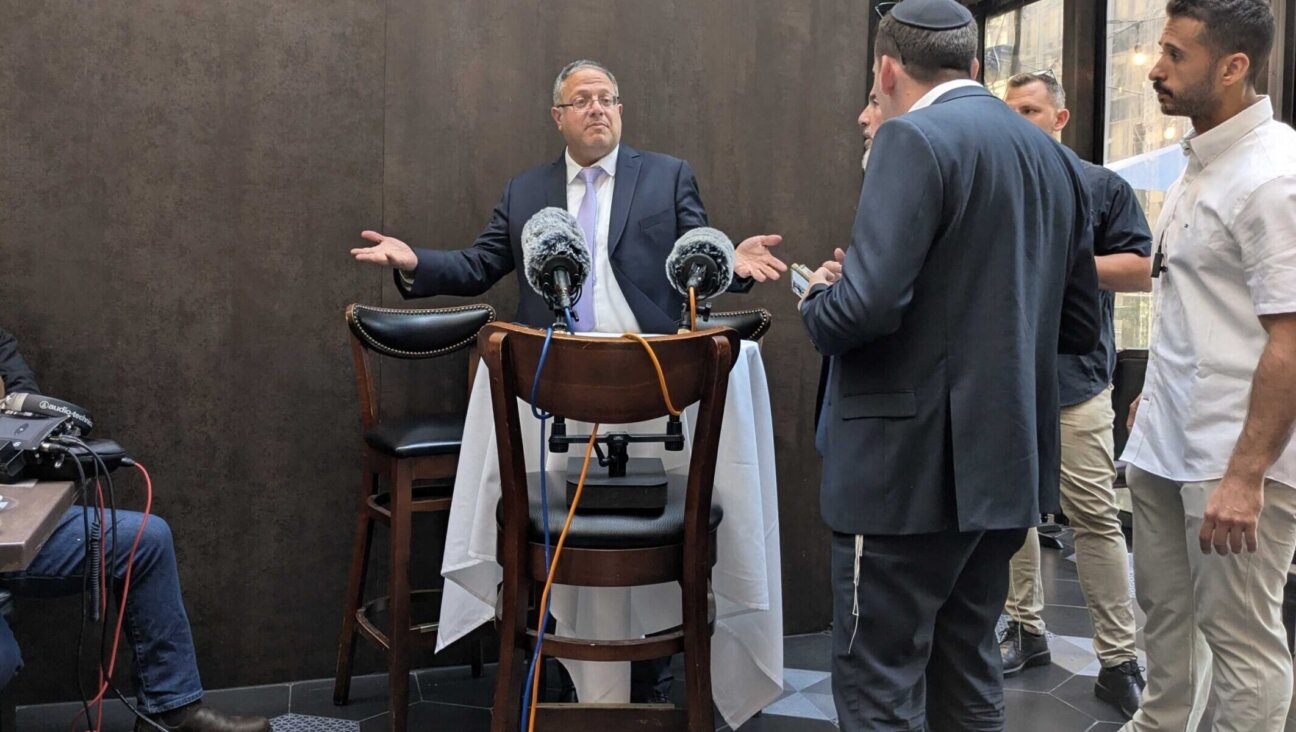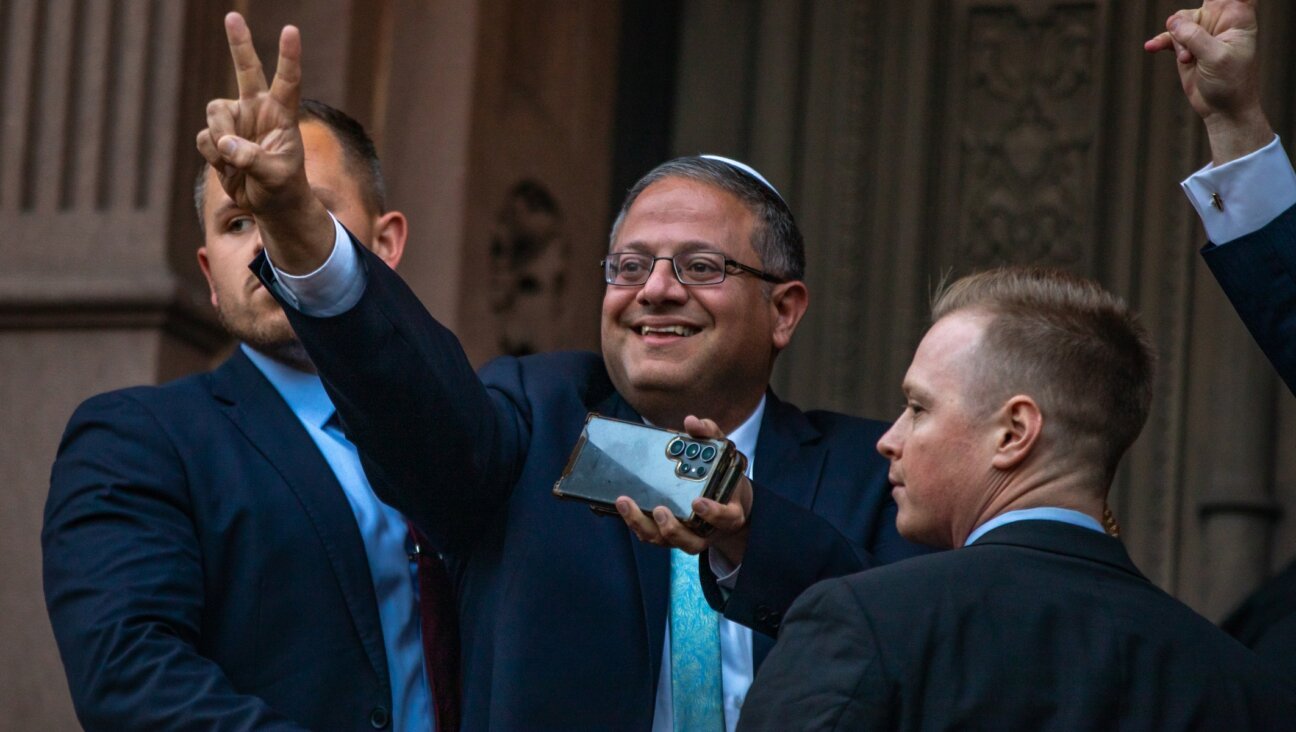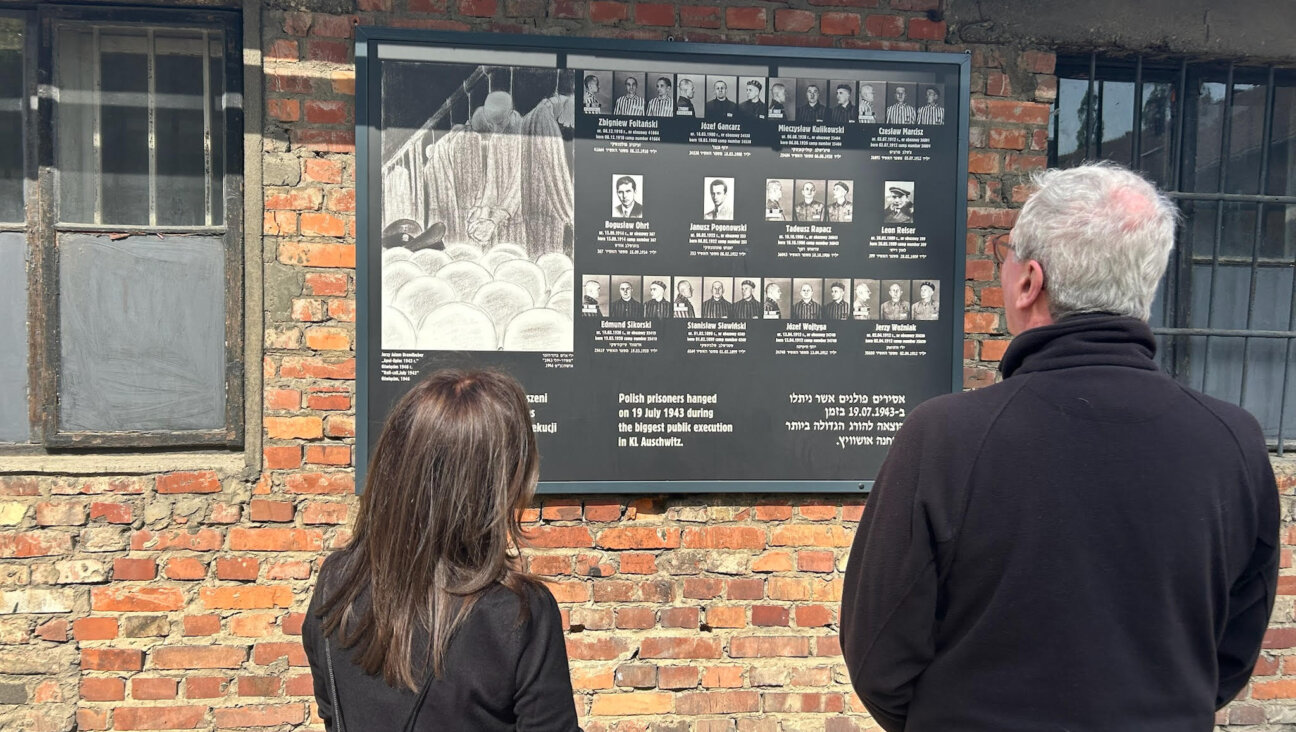What Not To Say When Your Friend Has A Miscarriage

Sad woman Image by iStock
I’ll always remember the dress I wore when I learned that my future baby’s heart had stopped beating.
I’ll also never forget the dresses I wore when my husband and I heard and recorded the heartbeat (twice), received our first ultrasound photo, and proudly hung it on the fridge for 5 blissful weeks. Those dresses were some of my favorites. By week 10, though, it was time to introduce some looser dresses into the mix – like the one I wore when I learned I miscarried.
I remember these details because miscarriage, like pregnancy, is intensely emotional. But in the days and weeks following my miscarriage and D&C, I started thinking about how pregnancy is meant to be kept secret during the first trimester, when the risk of loss is greatest.
Now, this doesn’t feel right. Not sharing the news means that for at least 20% of pregnancies, when one experiences a loss, they will mourn alone.
In my synagogue growing up, the Rabbi made a point to say that mourning is communal. On Shabbat, we all said the Mourner’s Kaddish, together, for those who were mourning, for those who had no one to say Kaddish for them, and for the 6 million. Jewish values mean that any loss should be mourned communally, but when society makes us believe that we should keep the pregnancy a secret for 13 weeks, we reinforce the idea that a pregnancy loss is something to be mourned in private. Even worse, it can make people feel like the loss is shameful.
I am guilty of largely falling for that mental trap. While my husband and I told a handful of people that I was pregnant early on, I kept it from coworkers and many friends, even close ones that I see regularly. Instead, I spent so much mental energy coming up with reasons why I wasn’t drinking, or excuses to not make plans with people. I’m now convinced that this is one big reason women experience 1st trimester fatigue! (You know, that, and the fact that you’re growing life.)
This all became suddenly real in my 10th week. I was leaving my doctor’s office, with the reality that I miscarried, in shock, feeling like there were only a handful of people I could call. I kept this a secret in case loss happened. And then 10 weeks and 3 days later, it did, and I was on the other side. Some of the people I needed most weren’t in the know, which made the pain even more acute since I didn’t have a full support network around me.
So what did I learn by not telling people?
Well, I learned that I wanted people to know about my loss. I decided to share the miscarriage with some colleagues, close friends, and family. Not the news I was working up in my head to share a few weeks later, but news that I always felt was lurking in the background as a risk. It helped me feel supported and understood, especially as I went back to work and social commitments. Telling people also helped me create a safe space, whether that was at work, or with friends. It’s also one of the reasons I decided to write this piece.
Pregnancy can be both joyful and painful, but thanks to societal pressures, women are only allowed to show one side of the equation. That same expectation isolates us, telling women that it’s hubris to share your pregnancy in the first trimester, because if and when loss happens, you’ll be a burden to others by having to share this intensely sad news.
However, once you share that you’ve had a miscarriage, it seems like everyone around you has had one too, or knows someone closely who has. It’s often spoken about in hushed tones and is more common that anyone realizes — that is, until you experience if yourself. The pain doesn’t go away, but becoming part of a club that is secret, large, and full of so much wisdom made me feel far less alone.
De-stigmaizing miscarriage also means acknowledging it, and making it part of the stories we tell ourselves and others. I know this newly acquired wisdom will inform any future pregnancies. And our family’s story will always include this lost pregnancy. Our reality is always going to be that we have X children through Y pregnancies – and those numbers will never match. And, when someone asks one of the most commonly asked pregnancy questions “is this your first?” I’m sure I will pause, and think about my first one. Maybe, in my matter-of-fact style, I’ll reply “No, I unfortunately I had a loss in an earlier pregnancy.” Jokingly, I prepare myself to watch the color drain from their face. Harsh, but that’s the truth.
If we’re to start talking more about miscarriage, we should probably have a vocabulary for it. To start us out, here are some of my lessons learned on what to do and what not to do if someone close to you suffers a loss, while also recognizing that everyone is different and grieves in their own way:
Be sensitive: A few days after I miscarried, a friend shared news of her pregnancy on social media. Her post included some of the most thoughtful, aware, and kind language I’ve ever seen; she recognized that her news may be tough for others on their own journey. She was able to hold space for both her joy, and the pain felt by others in her network and community. Be more like this friend.
Understand that any future pregnancy is going to be experienced through the fear and anxiety of loss: I know I’ll feel joy, but it will be a cautious joy that I know can be lost in a single heartbeat. In the great social work practice idea, meet people where they are. Not where you or society expects a pregnant woman to be. Some of us don’t want a baby shower. Some of us don’t want to purchase anything until the baby is born. Some of us want to surround ourselves with people who have experienced difficult pregnancies, losses, or postpartum periods. Ask a simple question – “How are you today?”: The sadness comes and goes, and just because you are laughing one day (or one minute) doesn’t mean that you aren’t crying the next. This question respects boundaries and puts the person or couple dealing with the loss in the driver’s seat.
Offer something concrete to help: Like bringing over a meal, going out for ice cream or manicures and pedicures. You make the plan. Just as Sheryl Sandberg wrote in Option B, specific offers are more meaningful than “let us know what we can do.”
Don’t say that you’ll be pregnant again soon: That may be true, but just stop. This completely ignores the memory of the life that was lost. And there’s absolutely no way for you to know that. Stick to, “this sucks and I’m sorry.” That’s a fact.
Be curious: If you are unfamiliar with miscarriage or some other pregnancy challenge, learn about it. Thankfully there are books, panels, and articles to read to learn more. Don’t expect the person going through the loss to educate you.
Be understanding: When someone in your life tells you they are anxious about pregnancy loss, or don’t want to celebrate the pregnancy quite yet (or maybe not at all until the baby has arrived), or aren’t drinking, respect that. Don’t point it out or ask probing questions. We’ll share news if and when we want to.
Miscarriage is all too common, and every journey to grow a family has twists and turns. The more we talk about our journeys, the more normal these challenges will feel. And society will be better off for it, as we can all use a little more compassion.
In her professional life, Sandy serves as the Vice President of External Affairs and Communications at Selfhelp Community Services, an organization dedicated to ensuring independence and dignity for Holocaust survivors and older adults as they age. Sandy lives with her husband Ames in West Orange, New Jersey.
The Forward is free to read, but it isn’t free to produce

I hope you appreciated this article. Before you go, I’d like to ask you to please support the Forward.
Now more than ever, American Jews need independent news they can trust, with reporting driven by truth, not ideology. We serve you, not any ideological agenda.
At a time when other newsrooms are closing or cutting back, the Forward has removed its paywall and invested additional resources to report on the ground from Israel and around the U.S. on the impact of the war, rising antisemitism and polarized discourse.
This is a great time to support independent Jewish journalism you rely on. Make a gift today!
— Rachel Fishman Feddersen, Publisher and CEO
Support our mission to tell the Jewish story fully and fairly.
Most Popular
- 1

Opinion The dangerous Nazi legend behind Trump’s ruthless grab for power
- 2

Opinion I first met Netanyahu in 1988. Here’s how he became the most destructive leader in Israel’s history.
- 3

Culture Did this Jewish literary titan have the right idea about Harry Potter and J.K. Rowling after all?
- 4

Opinion A Holocaust perpetrator was just celebrated on US soil. I think I know why no one objected.
In Case You Missed It
-

Opinion Trump’s heedless approach to an Iran deal could be a big problem for Israel
-

Fast Forward In NYC, Itamar Ben-Gvir says he’s changed — and wants ‘the Trump plan’ in Gaza
-

Opinion Itamar Ben-Gvir’s visit to a Jewish society at Yale exposed deep rifts between US Jews
-

Fast Forward On his first trip to Auschwitz, New Jersey governor urges vigilance against rising antisemitism
-
Shop the Forward Store
100% of profits support our journalism
Republish This Story
Please read before republishing
We’re happy to make this story available to republish for free, unless it originated with JTA, Haaretz or another publication (as indicated on the article) and as long as you follow our guidelines.
You must comply with the following:
- Credit the Forward
- Retain our pixel
- Preserve our canonical link in Google search
- Add a noindex tag in Google search
See our full guidelines for more information, and this guide for detail about canonical URLs.
To republish, copy the HTML by clicking on the yellow button to the right; it includes our tracking pixel, all paragraph styles and hyperlinks, the author byline and credit to the Forward. It does not include images; to avoid copyright violations, you must add them manually, following our guidelines. Please email us at [email protected], subject line “republish,” with any questions or to let us know what stories you’re picking up.















